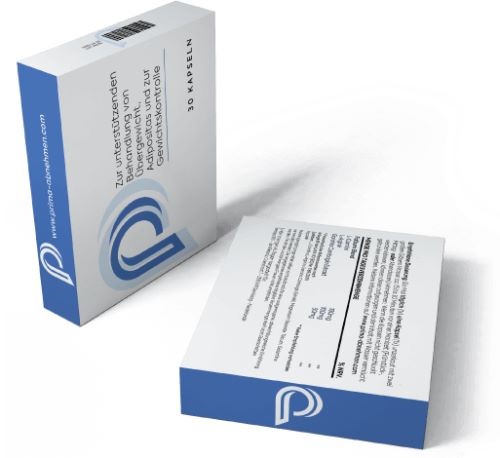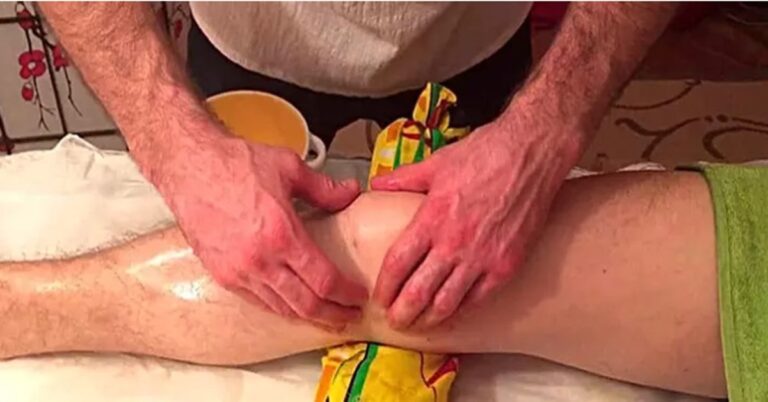The Best Fluffy Pancakes recipe you will fall in love with. Full of tips and tricks to help you make the best pancakes.
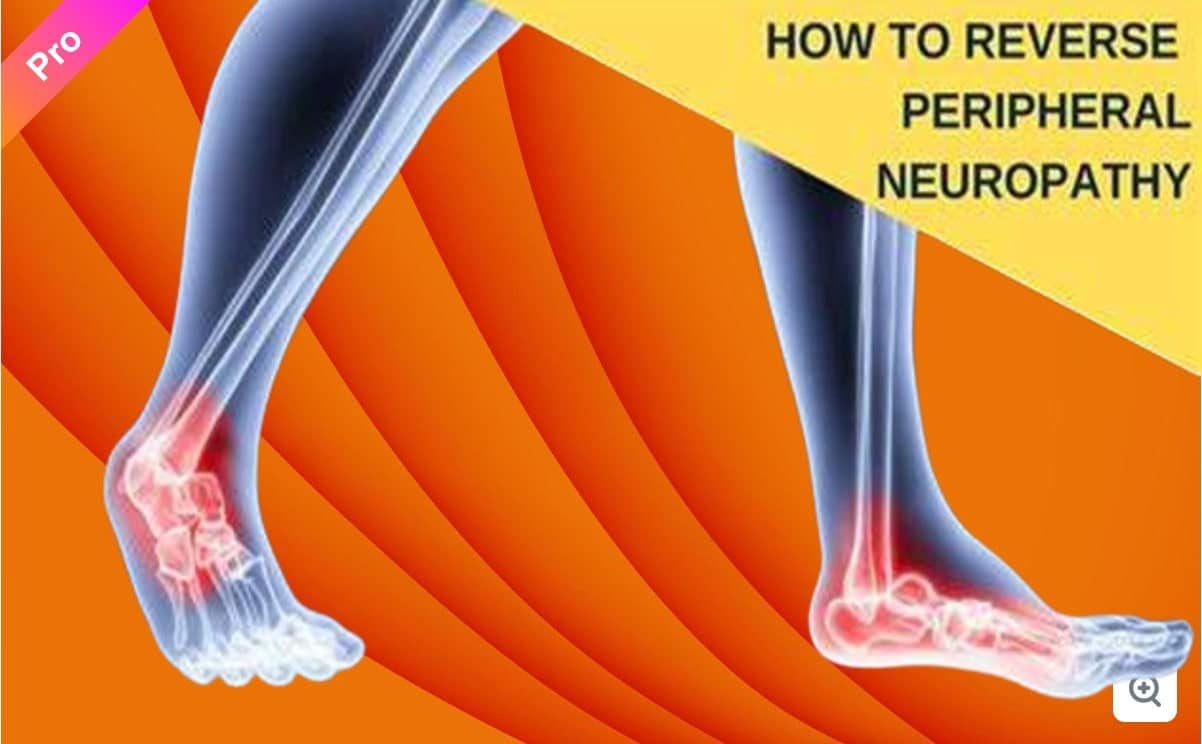
Neuropathy refers to a group of conditions that affect the nerves outside the brain and spinal cord, typically causing weakness, numbness, and pain in the hands and feet.
Neuropathy can be a result of several factors, such as injuries, infections, or exposure to toxins. However, the most common cause is diabetes. Let’s delve into a deeper understanding of neuropathy and how to reverse neuropathy in 7 days.
Neuropathy is a common condition characterized by nerve damage, often resulting in symptoms such as numbness, pain, or weakness, typically in your hands and feet.
The good news, according to medical experts, is that in some cases, neuropathy can be managed and even reverse neuropathy in 7 days completely. Here’s what you need to know about reversing neuropathy, according to medical professionals.
This refers to conditions resulting from damage to the peripheral nerves, which connect the brain and spinal cord to the rest of the body. It is a broad term that encompasses several different types and causes of neuropathy.
Causes of Neuropathy
Neuropathy can stem from a range of causes. The primary one is diabetes, particularly in people who struggle to manage their blood sugar levels.
Other causes include autoimmune diseases, tumors, bone marrow disorders, and inherited disorders. Infections like Lyme disease, shingles, hepatitis C, and HIV can also cause neuropathy. Additionally, exposure to toxins, alcoholism, and certain medications can result in nerve damage.
The most common cause of neuropathy is diabetes. However, other factors such as autoimmune diseases, infections, kidney disorders, certain inherited disorders, and vitamin deficiencies can also cause neuropathy.
Physical trauma, pressure on the nerves, or exposure to certain medications or toxins can lead to neuropathy as well.

Symptoms of Neuropathy
Neuropathy symptoms differ depending on the type and location of the affected nerves. The most common symptoms are numbness and tingling sensations in the hands or feet, sharp or burning pain, extreme sensitivity to touch, and muscle weakness.
Chronic cases may also lead to changes in hair, skin, and nails.
Common symptoms of neuropathy include numbness, prickling, or tingling in your hands or feet, sharp, jabbing, throbbing, or burning pain, extreme sensitivity to touch, and muscle weakness. More severe symptoms can include paralysis or difficulty coordinating movements.
Approaches to Reversing Neuropathy: Medical Expert Opinion
Medical experts suggest that the first step to reverse neuropathy is to address its root cause. For instance, if diabetes is the cause, controlling blood sugar levels can slow or stop the progression of neuropathy.
Medications can also be used to manage symptoms and help nerves recover. Therapies such as physical therapy and nerve stimulation can also be beneficial.
Reversing neuropathy involves addressing the underlying cause, managing symptoms, and repairing nerve damage. It may involve lifestyle changes, medications, dietary supplements, and alternative therapies. A medical expert’s opinion is pivotal in choosing the right approach.
Benefits of Reversing Neuropathy
Reversing neuropathy can significantly enhance the quality of life. It can help restore sensation in affected areas, improve balance and coordination, reduce pain, and decrease the risk of wounds and infections, especially in diabetic individuals.
Effectiveness of Neuropathy Treatments
Neuropathy treatments are quite effective, especially when started early. Medications, therapies, and lifestyle changes can alleviate symptoms, slow the progression, and in some cases, reverse neuropathy.
The effectiveness of the treatment often depends on the cause of neuropathy and patient compliance.
The effectiveness of neuropathy treatments varies widely and depends on several factors, including the cause of neuropathy, the type of nerve damage, and the individual’s overall health. Early detection and treatment can significantly improve the prognosis.
Reverse Neuropathy in 7 Days Naturally
Natural methods can help reverse neuropathy. This includes dietary changes, physical therapy, stress management, and the use of certain vitamins and herbs. A balanced diet high in vitamins B, E, and omega-3 fatty acids can help nourish the nerves and reduce inflammation.

Some natural treatments can help reverse neuropathy. This includes maintaining a balanced diet, regular physical activity, quitting smoking, and reducing alcohol consumption. Certain vitamins and herbs can also support nerve health.
Neuropathy, or nerve damage, can be a challenging condition to manage. It may result from various underlying conditions like diabetes, injuries, infections, and exposure to toxins, among others. Symptoms can include numbness, tingling, or pain, typically in the hands and feet.
While it’s not currently possible to completely reverse diabetes neuropathy in 7 days, especially naturally, there are steps you can take to manage symptoms and potentially slow the progression:
- Control blood sugar levels: If your neuropathy is due to diabetes, maintaining tight control over your blood sugar levels can slow the progression of nerve damage.
- Regular physical activity: Exercise can help control blood sugar levels, promote nerve health, and improve muscle strength, which can prevent further damage and help manage symptoms.
- Eat a balanced diet: Include foods rich in vitamins (particularly B vitamins), antioxidants, and omega-3 fatty acids, which support nerve health.
- Limit alcohol and quit smoking: Both alcohol and tobacco can exacerbate nerve damage and inhibit recovery.
- Manage underlying conditions: If your neuropathy is caused by a condition like lupus or rheumatoid arthritis, managing that condition may help reduce neuropathy symptoms.
- Use of Supplements: Certain supplements are believed to aid in nerve health and function, such as alpha-lipoic acid, acetyl-L-carnitine, N-acetyl cysteine, B vitamins, and omega-3 fatty acids. Always consult your healthcare provider before starting any new supplement regimen.
- Mind-body practices: Techniques such as acupuncture, meditation, yoga, and massage therapy might also help manage symptoms and improve overall quality of life.
While the above strategies may support nerve health and help manage neuropathy symptoms, it’s important to remember that they won’t typically lead to a rapid, complete reversal of the condition, especially within a short timeframe like 7 days. Nerve damage is typically a chronic condition that requires ongoing management. You should always consult your healthcare provider before starting any new treatment for neuropathy.
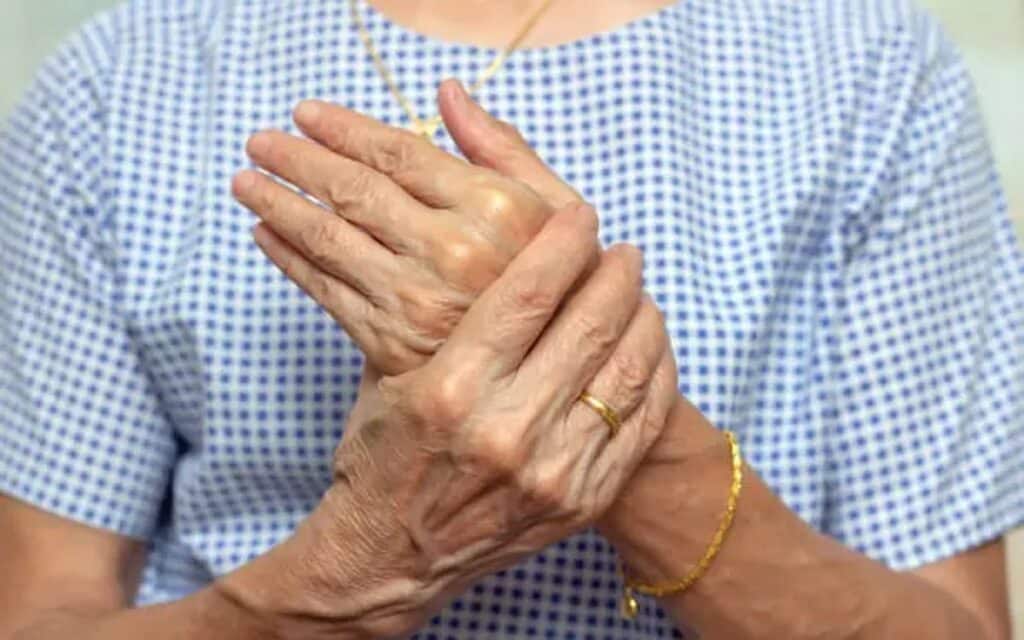
Neuropathy Treatment Methods
Neuropathy treatments aim to manage the disease based on its root cause and symptoms. These treatments include medications like pain relievers, anti-seizure drugs, and antidepressants. In severe cases, therapies like plasma exchange, physical therapy, and surgery may be required.
Neuropathy treatment methods include medications, therapies, lifestyle changes, and in severe cases, surgery. The treatment plan is usually individualized based on the patient’s symptoms, overall health, and the underlying cause of neuropathy.
Managing Neuropathy Pain
Pain is one of the most debilitating symptoms of neuropathy. Pain can be managed using medications, therapies like physiotherapy, transcutaneous electrical nerve stimulation (TENS), acupuncture, and also relaxation techniques.
Managing neuropathy pain involves a comprehensive approach. Medications, physical therapy, nerve blocks, and even alternative therapies like acupuncture can help reduce pain.
Foods and Supplements for Neuropathy
Diet plays a crucial role in managing neuropathy. Foods rich in B vitamins, omega-3 fatty acids, and antioxidants can help nourish nerves and reduce inflammation.
Supplements like alpha-lipoic acid, acetyl-L-carnitine, and B-complex vitamins have also shown promise in managing neuropathy.
Certain foods and supplements can support nerve health and may help reverse neuropathy. These include foods rich in B vitamins, omega-3 fatty acids, and antioxidants. Supplements such as alpha-lipoic acid, acetyl-L-carnitine, and certain herbal supplements can also be beneficial.
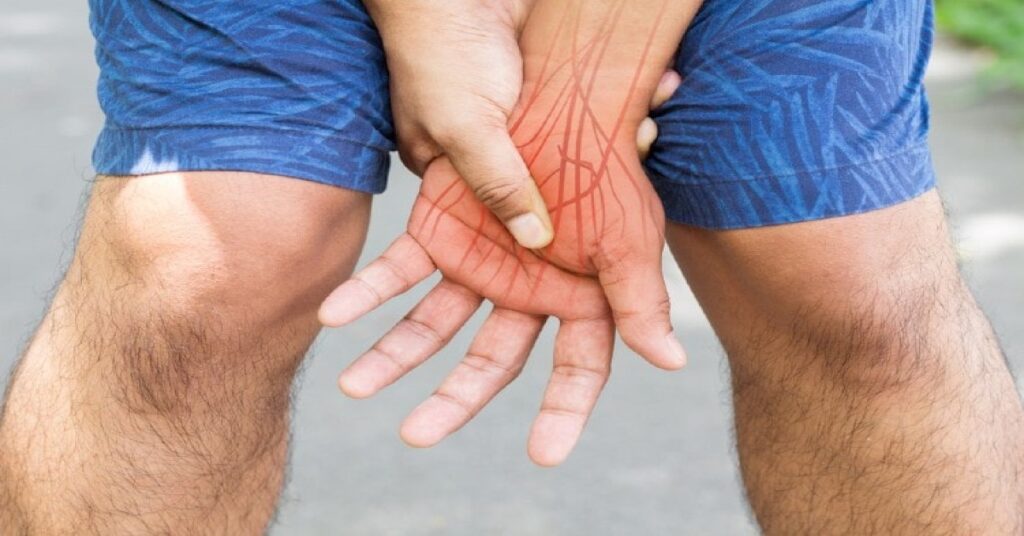
Role of Diet in Reversing Neuropathy
A well-balanced diet can help manage blood sugar levels, reduce inflammation, and support nerve health. Include foods rich in vitamins B, E, omega-3 fatty acids, and antioxidants. Avoid inflammatory foods like sugars, refined grains, and unhealthy fats.
Exercise and Physical Therapy for Neuropathy
Exercise and physical therapy can improve muscle strength, alleviate pain, and improve mobility in people with neuropathy. Regular physical activity also helps regulate blood sugar levels, reducing the risk of diabetic neuropathy.
Medications for Neuropathy Treatment
Several medications can manage neuropathy symptoms. These include pain relievers, anti-seizure medications, capsaicin, antidepressants, and lidocaine patches. Always consult a healthcare provider before starting any medication.
Alternative Therapies for Neuropathy
Alternative therapies like acupuncture, biofeedback, and hypnosis can provide symptom relief for neuropathy patients. Research supports the use of these therapies in managing neuropathic pain.
Psychological Impact of Neuropathy
Living with chronic pain and loss of function from neuropathy can significantly affect mental health. Depression, anxiety, and stress are common among neuropathy patients. It’s crucial to seek psychological support when dealing with neuropathy.

Lifestyle Modifications for Neuropathy
Lifestyle changes are crucial in managing and reversing neuropathy. This includes maintaining optimal blood sugar levels, regular exercise, a balanced diet, quitting smoking, and limiting alcohol consumption.
Neuropathy and Diabetes Connection
Diabetes is the leading cause of neuropathy, affecting up to 50% of people with the condition. Prolonged high blood sugar levels damage nerves, leading to diabetic neuropathy.
Neuropathy Treatment Approaches
Neuropathy treatment approaches depend on the underlying cause, type of neuropathy, and the patient’s overall health. It may involve lifestyle changes, medications, physical therapy, and alternative therapies.
Neurotoxicity and Neuropathy
Neurotoxicity, resulting from exposure to certain drugs, chemicals, or toxins, can lead to neuropathy. This includes certain chemotherapeutic drugs, heavy metals, and industrial solvents.
Neuropathy Prevention Strategies
Prevention strategies for neuropathy involve managing underlying conditions, maintaining a healthy lifestyle, and regular check-ups. Regular exercise, a balanced diet, and maintaining optimal blood sugar levels can help prevent neuropathy.
Definition of Neuropathy
Neuropathy is a medical term that refers to the dysfunction or damage of one or more peripheral nerves, causing symptoms like pain, numbness, tingling, and weakness.
Nerve Damage Reversal Techniques
Nerve damage reversal techniques involve managing the underlying cause, addressing nutritional deficiencies, using certain medications, and utilizing therapies that promote nerve regeneration.
Neuropathy and Nerve Regeneration
Nerve regeneration is a complex process that can help repair damaged nerves. This involves the use of certain medications, vitamins, and therapies that promote nerve growth and repair.
Herbal Remedies for Neuropathy
Herbs like St. John’s Wort, Cayenne pepper, and Evening primrose oil can provide relief from neuropathy symptoms. Always consult with a healthcare provider before starting any herbal treatment.
Vitamins and Minerals for Nerve Repair
B vitamins, Vitamin E, Magnesium, and Omega-3 fatty acids can promote nerve health and repair. They can be obtained from a balanced diet or through dietary supplements.
Neuropathy and Pain Management
Pain management in neuropathy involves the use of medications, physical therapy, and alternative therapies. In severe cases, nerve blocks or surgical interventions may be necessary.
Peripheral Neuropathy Treatment Options
Peripheral neuropathy treatment involves managing the underlying cause, controlling symptoms, and preventing further nerve damage. It may involve lifestyle changes, medications, dietary supplements, and various therapies.

Natural Remedies for Neuropathy
Natural remedies for neuropathy include a healthy diet, regular exercise, certain vitamins and herbs, and alternative therapies like acupuncture and massage therapy.
Neuropathy Medications and Side Effects
While neuropathy medications can effectively manage symptoms, they may also have side effects. Common side effects include drowsiness, dizziness, constipation, and the risk of addiction in the case.
Conclusion: On Reverse Neuropathy in 7 Days – Medical Expert Opinion
Although neuropathy is a serious and common condition, it can be managed and even reversed in some cases.
Medical experts emphasize the importance of addressing the root cause of neuropathy, maintaining a healthy lifestyle, and having a comprehensive treatment plan to manage symptoms and support nerve health.
As with any health condition, it is important to consult with a healthcare provider for personalized advice and treatment options.
There is indeed the potential for a neuropathy-free life, or at least a life where neuropathy symptoms no longer hold you back.
This isn’t about a miracle cure; it’s about taking control of your health and making changes that could improve your quality of life. The journey to reverse neuropathy is a process that requires dedication, but the rewards are truly worthwhile.
Remember, the journey of a thousand miles begins with a single step. Take that step today, start the 7-day plan watch this short video presentation, and embark on your journey to reclaim your life from neuropathy.
The path might not be easy, but the destination—a life of reduced pain, improved mobility, and enhanced well-being—will be worth it.

